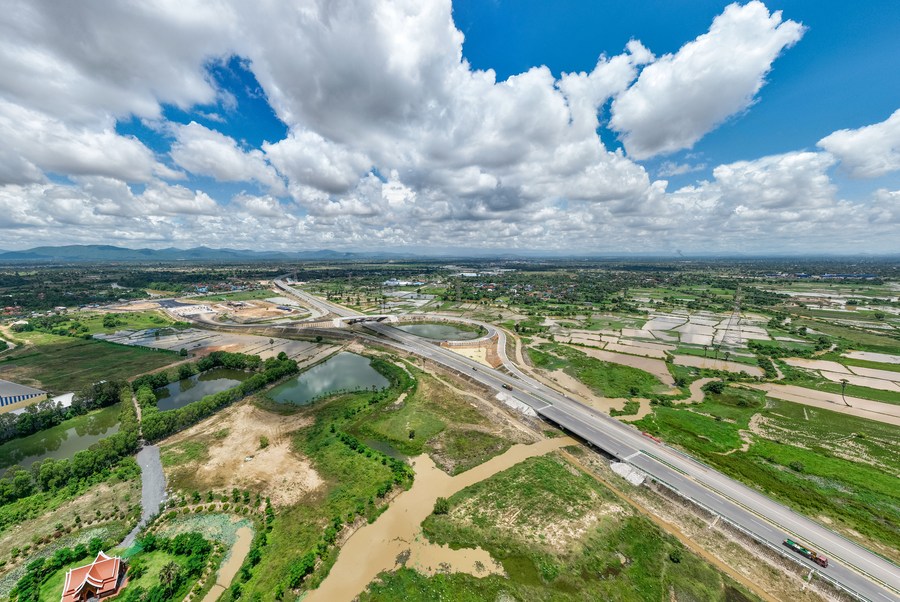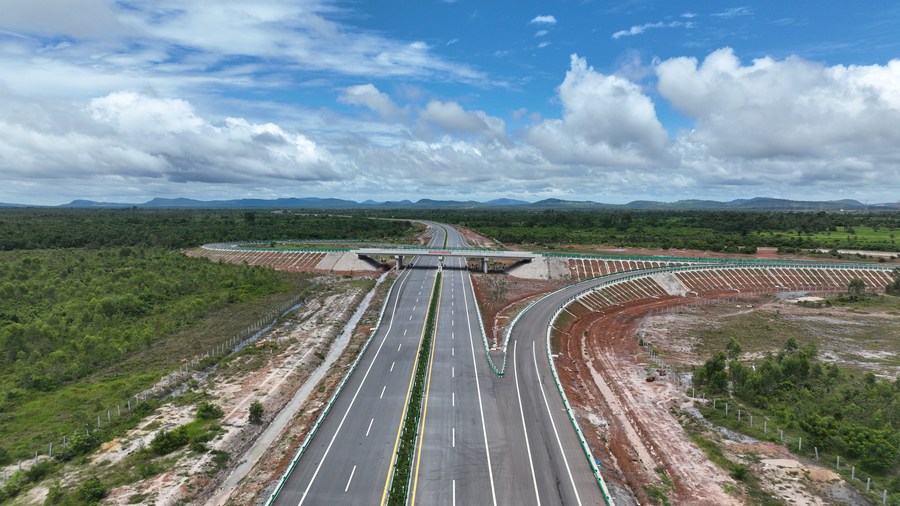RCEP, BRI boost Cambodia's socioeconomic, trade development: officials

Aerial photo taken on June 24, 2022, shows the Phnom Penh-Sihanoukville Expressway project in Kampong Speu Province, Cambodia. (Photo by Li Zhen/Xinhua)
The Regional Comprehensive Economic Partnership (RCEP) trade pact, the Cambodia-China Free Trade Agreement (CCFTA) and the Belt and Road Initiative (BRI) have laid a strong foundation for Cambodia and China to broaden their cooperation in economic, trade and investment areas, said a Cambodian official.
PHNOM PENH, Jan. 7 (Xinhua) -- The Regional Comprehensive Economic Partnership (RCEP) trade pact and the Belt and Road Initiative (BRI) have played an important role in boosting Cambodia's socioeconomic and trade development, officials said here on Friday.
Kao Kosal, director-general of the General Directorate of Trade Promotion at Cambodia's Ministry of Commerce, said RCEP, the Cambodia-China Free Trade Agreement (CCFTA) and the BRI have laid a strong foundation for Cambodia and China to broaden their cooperation in economic, trade and investment areas.
"They have provided and will continue to provide great benefits to Cambodia's socioeconomic development in the long term," he said at a Cambodia and south China's Guangxi Zhuang Autonomous Region business forum in Phnom Penh.
"The BRI has created a new engine for global economic growth," he said. "For Cambodia, the BRI has played a vital role in helping promote infrastructure development as well as economic and trade growth."

Aerial photo taken on July 16, 2022 shows the Phnom Penh-Sihanoukville Expressway project in Preah Sihanouk Province, Cambodia. (Photo by Li Zhen/Xinhua)
Suon Sophal, director of the Department of Public Relations and Promotion of Private Investment at the Council for the Development of Cambodia, said RCEP, the CCFTA, and the BRI as well as Cambodia's favorable investment law are key factors attracting Chinese investors to the Southeast Asian nation.
"With these free trade agreements and Cambodia's favorable investment law in place, I believe that more Chinese investors will come and invest in Cambodia in coming years," Sophal said.
RCEP comprises 15 Asia-Pacific countries including 10 ASEAN (the Association of Southeast Asian Nations) member states and their five trading partners, namely China, Japan, South Korea, Australia and New Zealand.
Joseph Matthews, a senior professor at the BELTEI International University in Phnom Penh, said RCEP has provided mutually beneficial cooperation and win-win results for all participating countries.
"RCEP has not only promoted greater regional economic integration, but also underscored the unwavering commitment of all member countries to free trade and multilateralism," he told Xinhua.

